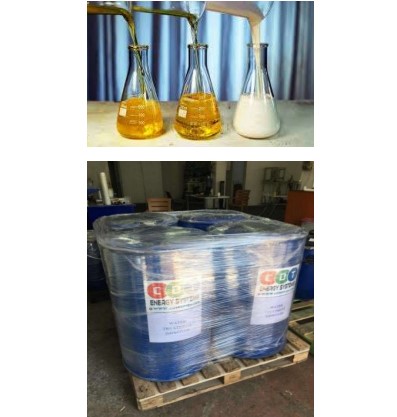CDT ENGINEERING SOLUTIONS (PROJECT BASED SPECIAL DESIGN, MANUIFACTURE AND SUPPLY OF CHEMICALS)
Chemical Additives


Cetane Number Improver (CNI)
CDT offers a special additive to improve the Cetane Number of Diesel. The target is to get a diesel fuel of high Cetane Number which will economically enhance the engine performance with environmental benefits. The benefits of CNI include: Reduce white smoke during warm up, Shorten ignition delay, Improve cold start, Reduce emissions (HC, CO, NOx and PM), Reduce engine noise, Reduce fuel consumption.
Additives for paraffinic & Asphaltenic Fuels
CDT offers Octane Number Improver which is used in low concentrations to provide refiners with increased flexibility in meeting gasoline octane specifications and reducing refinery emissions. The use of Octane Number Improver is a cost-saving method which ensures obtaining a high octane rated fuel. At low temperatures, different issues are encountered with paraffinic fuel due to the low solubility of paraffins. These issues include the formation of wax crystals, which can block fuel lines and filters.
Pour Point Depressant (PPD)
Pour Point is the lowest temperature at which fuel will flow. The PPD will lower the Pour Point of the fuel & produced diesel and let it cool to lower temperatures before it is gelled. CDT provides Pour Point Depressant which works on modifying paraffin crystals’ growth as they precipitate.
Vanadium Inhibitor
Heavy Metals in Heavy Fuel Oil: Vanadium is an oil-soluble trace metal found in all ash-forming fuel oils. Together with sodium, it cannot be removed in the refining process and has a corrosive effect when burned at high temperatures, contributing to the formation of slag. During combustion, vanadium and sodium oxidize and form semi-liquid and low melting salts (vanadium pentoxide), which adhere to exhaust valves and turbochargers. In practice, the extent of hot corrosion and fouling are generally maintained at an acceptable level through temperature control, an operational solution, and material selection such as the addition of magnesium oxide (Nano Liquid).
Nano Liquid additives reduce vanadium’s corrosive potential by binding it with the magnesium, and increasing the melting point of the vanadate’s. Due to the size of standard Nano Liquid particles, these products do not stay suspended in the fuel. B 18 blends with HFO with very little agitation and once blended, the nano particles of Nano Liquid stay dispersed evenly without settling to the bottom which is especially important when fuel is not flowing.